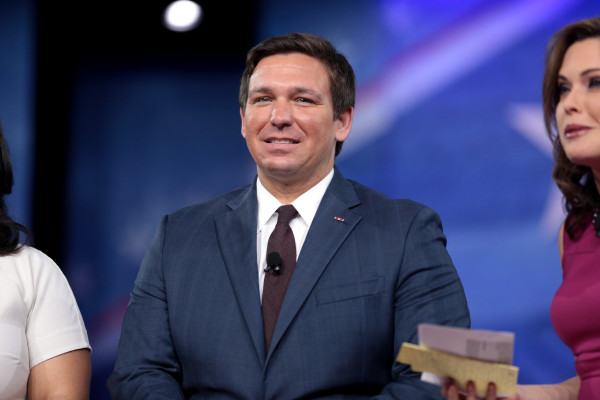Poll: DeSantis Leads as Republican Favorite for Trump's VP

Florida Governor Ron DeSantis has emerged as the top choice for Donald Trump's vice-presidential running mate among Republican voters, according to a recent poll conducted by The Economist/YouGov. Despite DeSantis's clear statements that he is not interested in the position, over 40% of Republican respondents selected him as their preferred pick, highlighting his strong influence and popularity within the party.
DeSantis, who initially appeared to be a formidable contender against Trump in the primaries, saw his campaign falter after a significant defeat in Iowa. Nevertheless, his support among Republican voters remains robust. The poll also indicated that 40% of independents leaning towards the GOP favor DeSantis as Trump's potential running mate.
Trailing behind DeSantis in the poll is Florida Senator Marco Rubio, who garnered 27% of the respondents' votes. While Rubio is interested in the vice-presidential spot, he has refrained from actively campaigning for it. According to The New York Times, Rubio has adopted a low-profile approach, and his aides and donors view him as a candidate who would not pose significant risks or distractions for Trump, who is already dealing with multiple legal challenges.
Rubio's strong relationship with Susie Wiles, a senior adviser to the Trump campaign and a fellow Floridian, further bolsters his chances. Wiles is leading the search for Trump's running mate, adding another layer of complexity to the potential Trump-Rubio ticket.
However, a Trump-Rubio ticket faces potential constitutional challenges. The U.S. Constitution may prevent two residents of the same state from sharing a presidential ticket, which would necessitate Rubio relocating if chosen. This requirement stems from the Electoral College rules, which state that electors cannot cast votes for both a president and a vice president from their own state.
The dynamics between Trump and Rubio have evolved significantly since their heated 2016 primary contest. The two engaged in public spats, mocking each other's physical appearances and intelligence. Despite this contentious history, Trump has reportedly developed respect for Rubio, recognizing his appeal to Latino voters and the potential to attract a more moderate electorate.
As Trump's search for a vice-presidential candidate intensifies, Rubio's measured approach has raised questions about his true interest in the role. According to sources familiar with the matter, Trump has privately expressed uncertainty about Rubio's commitment to the job, given his subdued presence on the campaign trail.
This ongoing speculation comes at a time when Trump is navigating a complex political landscape, marked by his multiple legal entanglements and a divided Republican Party. DeSantis's strong showing in the poll underscores his continued relevance and influence, even as he distances himself from the vice-presidential slot.
The Economist/YouGov poll reflects the broader dynamics within the Republican Party, where loyalty to Trump remains a significant factor. DeSantis's popularity among Republican voters suggests that his policies and leadership style resonate with the party's base, despite his reluctance to join Trump's ticket.
Rubio, with his potential appeal to a broader electorate and his strategic alliance with key Trump campaign figures, remains a viable option. However, his low-key campaign strategy and the constitutional hurdle of his residency present significant challenges.
As the 2024 election cycle progresses, the selection of a vice-presidential candidate will be a crucial decision for Trump. The choice will likely reflect broader strategic considerations, including the need to unify the party, appeal to a diverse voter base, and navigate the complex legal and political landscape that lies ahead.














